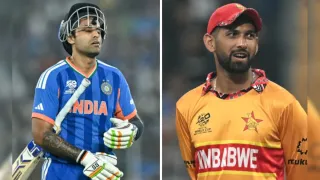It's no secret that cricket is the most popular sport in India, with cultural roots dating back to the Mahabharata and Ramayana, and even British-era horse racing. This growing interest has translated into cricket betting, with over $340 million in bets placed during mega-events like the IPL. However, despite the country's increasing appetite for the pastime, the absence of a clear regulatory framework has left it in a legal grey area.
Online gambling and sports betting in India have always had a tumultuous legal journey, with regulations varying across states and leaving many areas in legal grey zones. The Public Gambling Act of 1867 remains the primary legislation governing gambling, but it does not explicitly cover online betting, creating uncertainty for operators and players. While some states like Goa and Sikkim have legalised certain forms of gambling, others enforce strict prohibitions. The rise of technology and online platforms has further complicated the regulatory landscape, making it essential for punters to navigate carefully.
Despite these complexities, reputable platforms exist within the legal framework. Licensed operators tested by NoDepositRewards.org ensure that players can engage in cricket betting with ease and accessibility. However, staying informed about evolving laws and regional restrictions remains crucial for both operators and bettors.
Keep reading to get an overview of India’s online gambling laws regarding cricket betting.
Gambling Laws
Cricket may be India’s most beloved sport, but betting on it exists in a legal grey zone that continues to confuse players and operators alike. While individual states have the power to set their own gambling laws, the overarching rulebook is still the Public Gambling Act of 1867, a 150-year-old law from the British era. This antiquated legislation bans most forms of gambling, targeting both gamblers and those running betting operations, with fines and penalties for violators. But here’s the twist, it only applies to physical gambling venues, not the digital world.
That gap has left room for online betting to grow, as many argue that what's not explicitly banned is, by default, allowed. But it’s not that simple. In 2000, the Information Technology Act was introduced to regulate online behavior, yet it failed to even mention gambling or betting, leaving the digital betting scene largely unregulated.
Fast forward to 2021, and the government began to catch up. Amendments to the Information Technology Rules laid the foundation for self-regulatory bodies, official groups that can license and oversee online gambling platforms in India.
State Laws
Without a clear nationwide law, individual states in India are left to set their own rules regarding gambling, some embracing regulation, while others impose strict bans. Goa and Sikkim have long welcomed gambling, with regulated casinos and betting services attracting both locals and tourists. The Union Territories of Daman and Diu also allow casino operations under local laws, making them rare legal havens in a country where most betting still operates underground.
In 2021, Meghalaya briefly moved toward regulation by passing legislation to license and oversee online gambling, including cricket betting. It was a bold and progressive step, but short-lived. Just months later, the law was repealed, ending what could have been a pioneering moment in Indian betting reform.
Despite these exceptions, much of India remains largely unregulated, resulting in a confusing patchwork of laws. Still, with around 80% of Indians reportedly placing a bet at least once a year, the demand is undeniable. As such, the question of whether it is legal to bet on cricket truly depends on the state.
Offshore Operators Woes
Offshore operators have quickly capitalized on India's passion for cricket and the growing demand for online wagering. These illegal platforms have established themselves as prime destinations for Indian players by offering tailored experiences, accepting Indian rupees, and often promoting exclusive cricket betting odds.
However, because they operate outside Indian jurisdiction, these companies are not bound by local laws like the outdated Public Gambling Act of 1867. This loophole allows them to offer services to Indian residents without technically violating national or state gambling regulations. While convenient for players, this situation exposes them to the risk of fraud and exploitation.
The core challenge in regulating cricket betting lies in the international scope of online gambling. Indian laws do not apply to foreign websites, which allows offshore operators to freely cater to Indian players. Although the government has made efforts to limit access to these international betting platforms, the absence of clear and enforceable regulations continues to make offshore cricket betting a persistent issue.
Disclaimer
Possible11 is a sports news and analysis platform designed purely for entertainment and educational purposes. All match previews, player insights, and team analyses are based on publicly available information and expert opinions. We do not promote or support betting, gambling, or real-money gaming in any form. Users are encouraged to enjoy our content responsibly and use it for informational purposes only.






















Give Your Feedback